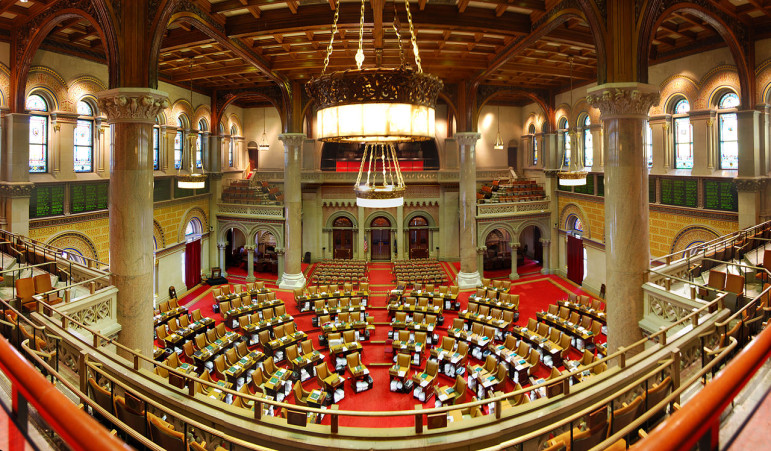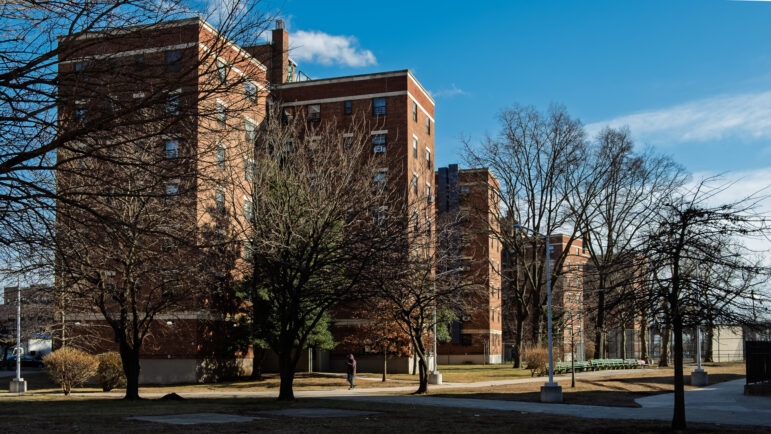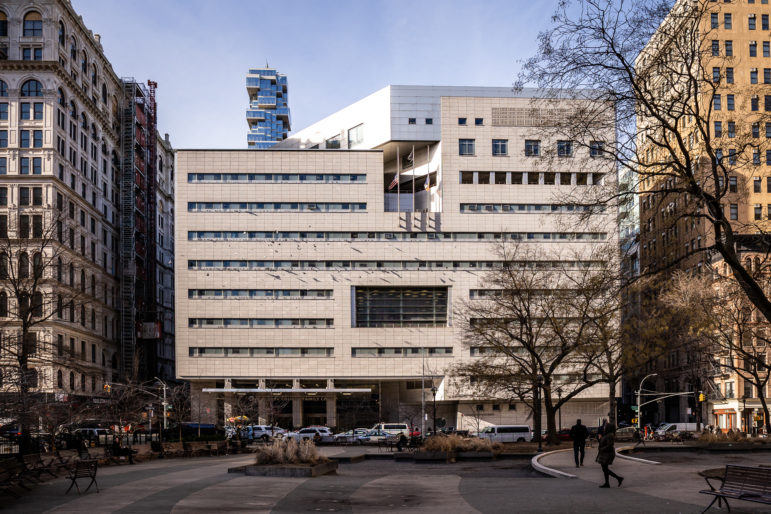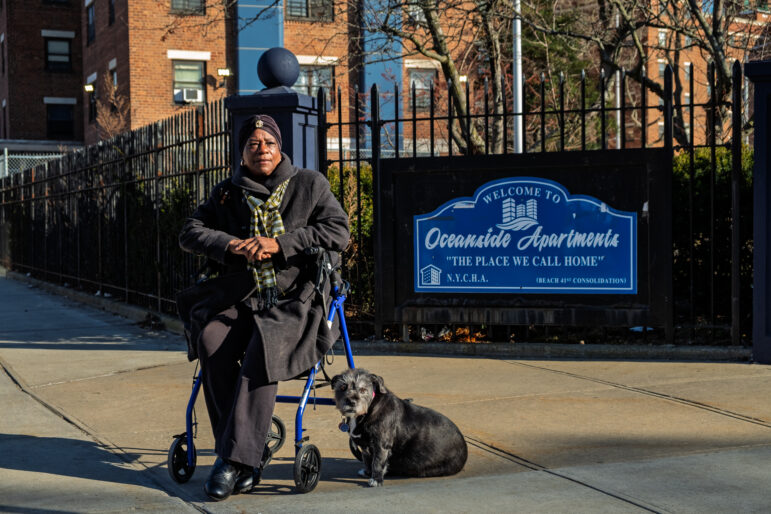
The New York State Assembly chamber. Some tenant advocates say their hopes for protecting or expanding rent regulations hinge on getting this body to take a hard line in negotiations with the landlord-friendly Senate.
The debate over whether to renew rent regulations that cover a million apartments in New York City is really a bundle of interrelated arguments. It’s about the rules that allow apartments with monthly charges above a certain threshold to escape regulation, the extra rent boost landlords are granted when an apartment goes vacant, the rent discounts landlords can withdrew at will and the special rent increases granted when property owners spruce up a single apartment or a whole building. And those are just some of the items on this year’s menu of state housing policy decisions, which also includes major tax breaks for building and fixing residential real-estate.
Each and all of those issues will weigh heavily on the affordable housing push that is the linchpin policy effort of the de Blasio administration.
But one of Mayor de Blasio’s top political advisers told a City Council hearing on Monday that City Hall won’t stake out its position on all of them until after the state budget is complete.
“Our specific positions on those items will be introduced later, in coming weeks,” Emma Wolfe, the mayor’s director of intergovernmental affairs, told the Council’s Housing Committee. Its chair, Brooklyn Councilman Jumaane Williams, has held a few hearings in an effort to get more details about the mayor’s affordable housing plan and City Hall’s position on policies like the 421a tax break, one of the measures up for renewal in Albany. When Williams pressed Wolfe on Monday for some nuts and bolts, she reminded him with a smile that she was “staying on message,” the message being: “We consider most of the issues affecting housing to be post-budget issues in Albany.”
The state’s budget deadline is April 1. The mayor did confirm last week in his testimony at the state capitol that he supported repeal of vacancy decontrol, the measure that permits landlords to remove units from rent regulation once they go vacant and have a legal monthly rent of $2,500 or more. That measure has allowed at least 133,000 rent-stabilized units to leave the system since 1994.
But on the other rent-regulation issues—vacancy bonuses, preferential rents, individual apartment improvements, major capital improvements—it will remain unclear for a few weeks what the administration’s specific “ask” will be. That final mix seems likely to involve some tradeoffs.
City Hall faces a difficult series of other battles at the state capitol this year, over mayoral control of schools, funding for programs to address homelessness and the real-estate tax breaks. By separating the rent-law discussion from the budget process, they avoid some of the pressure to agree to some grand (or, probably, not so grand) bargain.
As hundreds of tenants will argue when they head to Albany on Tuesday for a “lobby day” targeting the state legislators who must vote by June 15 on renewing the rent laws, simply restoring the current regime would leave in place loopholes likely to drown out the impact of the housing construction and preservation the mayor has set out to do.








